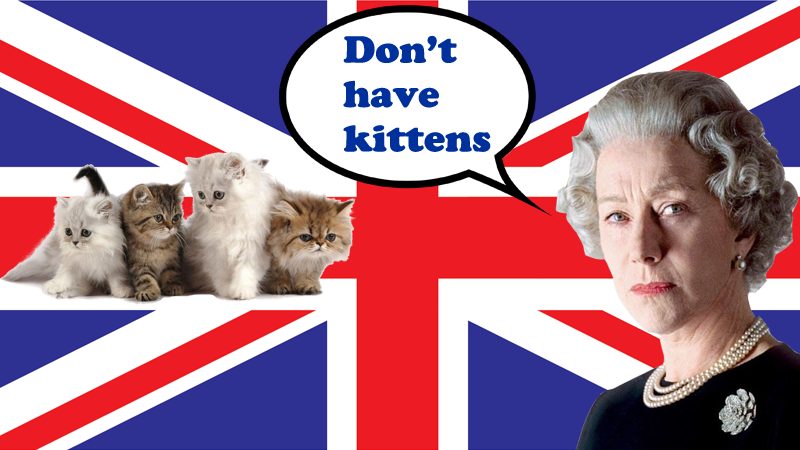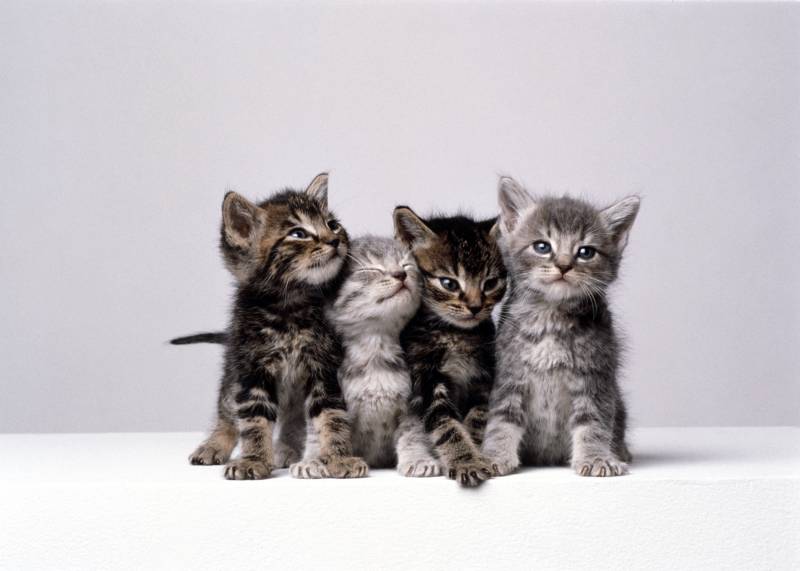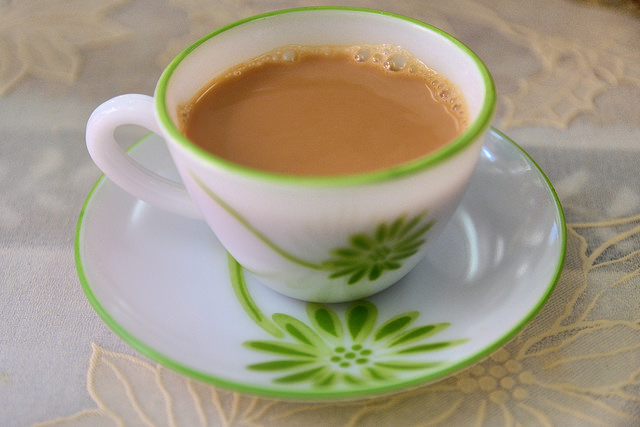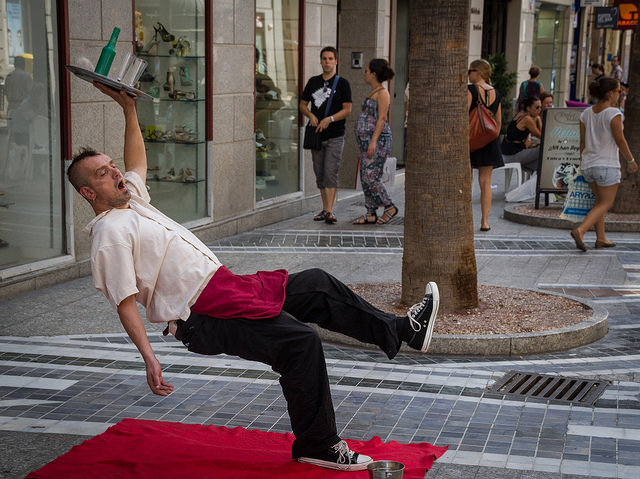This piece was inspired by an episode of The Cooler, KQED’s weekly pop culture podcast. Give it a listen!
No Damp Squibs Here: A Handy Guide to Odd British Sayings

Ah, idioms—those obscure, frequently-baffling bits of language-within-a-language guaranteed to make learning any foreign tongue that little bit harder. As explored on a previous episode of KQED Pop’s The Cooler podcast, the world's languages are chock-full of these linguistic puzzlers, but brace yourselves, America: trusty old British English is no less stuffed with idioms just waiting to confuse you in a pub somewhere.
So, if you’re planning a trip across the pond to take advantage of Britain’s natural beauty and/or staggering post-Brexit currency woes, read on for the sayings most likely to make you come a cropper! (Including that one right there.)
“A damp squib”
Meaning: a bust; a disappointment, particularly after much anticipation.
Example usage: “After all that planning, Carly’s birthday party was a total damp squib.”

It’s hard not to imagine this one rising to prominence purely on the basis that “squib” is really fun to say. The word actually means “small explosive device”—i.e. exactly the sort of thing you wouldn’t want to be damp. Older squibs were un-insulated and needed to be kept dry in order for the gunpowder to ignite, making any “damp squibs” a pretty disappointing display. Fun fact: In the film industry, squibs now often refer to the little explosions of fake blood used to simulate gunshots.
Note: Despite it being a common eggcorn, the phrase is NOT “damp squid”, as explored in this delightful clip from cult comedy The I.T. Crowd.
“Have kittens”
Meaning: to totally freak out; plunge oneself into a panic.
Example usage: “Carly’s having kittens because nobody came to her birthday party.”

Sorry, friends: This idiom is nowhere near as cute as it sounds. Per our friends at the BBC, this phrase is rooted in the age-old fear of witchy women. Apparently, folk of yesteryear believed that witches could place a spell on a pregnant woman by turning her unborn baby into kittens. As if that wasn’t bad enough, it was also believed that these kittens would begin to scratch at the woman’s womb. This superstition led many women who were experiencing the total normal abdominal pains that come with pregnancy to think that they had fallen victim to a witch’s feline spell.
“Go down a treat”
Meaning: to be received or consumed happily (esp. tea or cake).
Example usage: “At least Carly’s birthday cake went down a treat.”

There’s no great medieval mystery to unravel for this one. All you need to know is that Brits love tea so much that we basically invented a way to describe an exceptionally good cup of tea: “That went down a treat.” The phrase can, of course, be applied to anything that’s just given you pleasure or won your approval. Why not apply it to a sweet gift, a funny joke or a particularly well-constructed Powerpoint presentation? (Incidentally, the sample usage provided by the Cambridge Dictionary of Idioms is “His animal impressions went down a treat with the children”, which might be the finest exemplar ever.)
“To take the piss [out of someone/something]”
Meaning: to mock.
Example usage: “Carly couldn’t hide her tears, as the townspeople took the piss out of her pathetic party.”

Finally, some sauciness for you patient people! Per Professor Will K. Pedia, this phrase refers to the outdated British expression “piss-proud”, which itself refers to the ... uh, heightened state a chap might find himself in upon waking in the morning with a dire need to pee. This (obviously?) translates into a metaphorical sense of false “pride”, so in this context “taking the piss” out of aforementioned chap would deflate that pride (and more besides). If you’ve ever read a Shakespeare play, you’ll know that we find all this penis stuff really funny.
VERY IMPORTANT NOTE: “Taking the piss” also has a secondary, same-but-different meaning when applied to someone who is outrageously taking liberties, acting in bad faith or behaving in such a way that makes a mockery of something. (“Charging $2,000 for his dreadful painting? He is really taking the piss with that one.”) Delightfully, this usage seems to have its roots in the fascinating field of canal-based chicanery (click here for more on that).
And finally, as promised…
“Come a cropper”
Meaning: to fall or trip.
Example usage: “As Carly fled her party in tears, she came a cropper on the croquet lawn.”

From gunpowder and witches to tea and toilet humor, this sociolinguistic trip through the British psyche finds us at our natural conclusion: equestrianism. This common phrase apparently refers to a rider falling from a horse, with “cropper” coming from an old word for a horse’s backside—ie. the part you’d be most likely to see as you tumbled. It’s a testament to how much we really love our horses that this hunting term passed into general usage. Tally ho, indeed.

